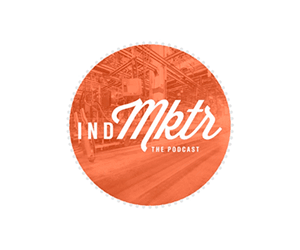Manufacturing is a competitive industry. There are more than 500,000 manufacturing businesses in the U.S. alone, which means an ocean of potential competitors. As it becomes increasingly challenging to stand out, manufacturing marketing has become essential.
Online advertising provides plenty of opportunities to distinguish yourself from competitors, as its lower cost of marketing enables more experimentation. Another one of the most effective approaches today is to embrace ethical marketing. Today’s consumers are thoughtful, considering the implications of what they buy, and manufacturers must account for this.
As more businesses look to appeal to these changing consumer preferences, they’ll seek ethical partners. Manufacturers looking to stay competitive in this shifting landscape should embrace ethical marketing to meet this demand. Here’s how companies can strengthen their footholds by employing these efforts and a closer look at how some businesses are doing it right.
What Is Ethical Marketing?
Many businesses understand ethical marketing in theory, but what it looks like in practice may be unclear. Generally speaking, it involves emphasizing how buying a product or service benefits social or environmental causes. Since millennials and Gen Z are more likely to pay more for ethical products, businesses are now looking to promote moral practices.
Part of the shift to appeal to these consumers involves partnering with ethical manufacturers. As this trend continues, companies without publicized moral practices may face declining business as a result. Just as you’re legally responsible for producing safe products, you’re socially accountable for creating ethical ones in today’s market.
This trend presents manufacturers with an enticing economic incentive. If you emphasize your ethical practices throughout your marketing campaigns, you’ll appeal to businesses looking to impress end-user customers that care about those causes. To help clarify how this might work in practice, here are four examples of manufacturers who have fully embraced ethical marketing to serve as inspiration.
3M’s Commitment to Sustainability
Multinational conglomerate 3M has prioritized sustainability for decades and has an entire section of its website dedicated to these efforts. Here you can find annual reports detailing its ethical investments and projects for the year. The company has published these since 2002, giving it a regular platform to promote its ethics.
3M also features a tool on its website for partners or employees to report ethical concerns. While this may seem insignificant, promoting such a tool on your website establishes an air of transparency, appealing to socially responsible business partners. This feature gives potential clients confidence that 3M takes ethics seriously.
These efforts haven’t gone unnoticed by other organizations, either. The Ethisphere Institute has named 3M one of the world’s most ethical companies eight years in a row as of 2021. 3M has capitalized on this recognition by pinning news segments about these awards on its website for everyone to see.
Cisco’s Circular Economy
Like 3M, electronics manufacturer Cisco centers its ethical marketing campaigns on transparency. The company, and most of its suppliers, publish annual corporate responsibility reports. These regular updates communicate to potential partners that Cisco investigates its own operations to ensure they’re ethical.
Cisco also takes a more targeted approach to stand out from other manufacturers. The company has committed to building a circular economy, a goal that it heavily promotes. Cisco has a dedicated portion of its website explaining its initiative and how it can help partners establish one.
This specificity is a valuable lesson in ethical marketing for manufacturers. Instead of using vague language and buzzwords, Cisco has chosen a specific issue to focus on. This demonstrates that the company is interested in ethics beyond a marketing tool.
Cummins’ Alternative Fuel Initiatives
Cummins, an engine and generator manufacturer, also takes a focused approach to ethical marketing. Sustainable alternative fuels like biodiesel and hydrogen make up a considerable portion of the manufacturer’s business model. As an engine producer, this area of ethics applies directly to its industry and target market.
Most of Cummins’ clients and partners will likely be in the automotive or power industries. These two sectors produce the most greenhouse gas emissions in the U.S., so clean power is a prevalent concern for the company. By promoting its focus on sustainable fuel, Cummins appeals to its potential clients in this industry on a more meaningful level.
Cummins’ ethical marketing goes beyond promoting its alternative fuel initiatives, too. More than half of the “about” page on its website highlights ethical investments and goals. Any potential clients that go to this page to learn about the company will see more ethical promotions than anything else.
Eastman Chemical Co.’s Emphasis on Ethics
While many manufacturers include a section about ethics on their website, Eastman Chemical Co. puts ethics on its front page. The homepage of Eastman’s website features mostly information about its sustainability achievements and goals. Standard sections you might expect to see, like contact info, take up a much smaller, less eye-catching portion.
Eastman uses bright colors, dynamic displays and photographs to bring website visitors’ attention to its sustainability information. Like others on this list, Eastman provides annual reports about its ethical initiatives, but it also goes a step further. The company promotes other third-party sustainability reports, emphasizing how it cares about the environment beyond its own efforts.
Eastman also takes an unusually in-depth approach to its governance and responsibility publishing. The chemical manufacturer’s goals and strategies include in-depth breakdowns, demonstrating action and forethought. This specificity helps it stand out from others who may only use ethics as a trendy buzzword.
Ethical Marketing Is Increasingly Crucial for Manufacturers
Marketing for manufacturers must account for shifting consumer preferences, even in the B2B space. As consumers are growing more concerned about social and environmental issues, your clients are becoming more aware of how their purchases and partnerships make them look. Manufacturers must embrace ethics and promote these efforts to appeal to more clients and pick up a larger portion of market share.
By engaging in ethical marketing, manufacturers can attract socially and environmentally conscious partners. Those that don’t do so may quickly fall behind others that use ethical marketing to gain a competitive edge. Businesses today can’t afford to ignore ethical marketing, and neither can the manufacturers that supply them.




